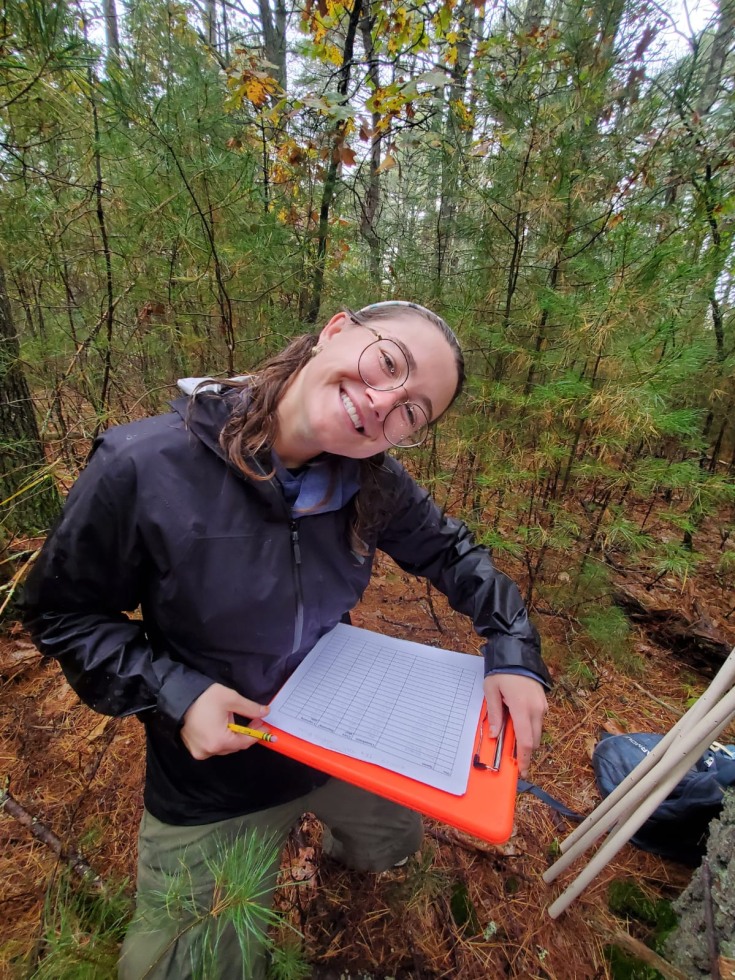In April 2023, a rare, high-intensity wildfire swept through part of the Queen’s River Preserve in Exeter, Rhode Island—an event virtually unprecedented in the region’s recent history. Where others saw only destruction, Diandra Polt ’25 saw a window into forest resilience. Her senior thesis, Early Postfire Effects on Seedling Regeneration in a Pine-Oak Forest of Rhode Island, explores how local forests respond to fire after decades of suppression. It reveals how wildfire may be a surprising ally in conserving some of New England’s rarest species.
Working alongside her advisor, Biology Lecturer Rebecca Kartzinel, and Ian Kinahan, an ecologist with the Massachusetts Department of Conservation and Recreation, Polt established monitoring plots in both burned and unburned areas of the Preserve. Over two growing seasons, she recorded and analyzed seedling density, diversity, and species composition—precious data in a region where postfire ecological studies are scarce.
